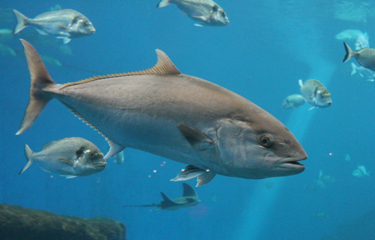The Inter-American Tropical Tuna Commission (IATTC) agreed at a special session on 22 December to a rollover of its existing quotas for tropical tuna in the eastern Pacific for 2021.
The tropical tuna fishery – which includes bigeye, yellowfin, and skipjack tuna stocks – brings in billions of dollars’ worth of fish annually. At its annual meeting earlier this month, the commission failed to reach a consensus on the management of tropical tunas by one vote – with Colombia opposing the resolution – leaving tuna fisheries without any rules of governance starting on 1 January.
“This is much-needed action after the commission’s unprecedented failure at the beginning of December to come to agreement, which would have left this huge swath of ocean without any rules to govern these fisheries at all,” Grantly Galland, an officer for The Pew Charitable Trusts’ international fisheries program, said in a press release.
Galland said IATTC must do better in the future “to ensure this type of crisis never happens again.”
“The pressure is on IATTC to prove it takes its mandate to manage tropical tunas seriously,” he said. “These last few weeks have shown that conservation groups, fishing industry members, seafood buyers, and the wider public all care deeply about the future health of Pacific fisheries. The world is watching now, and Pew looks forward to IATTC working urgently on harvest strategies that will allow fishing to continue, but with a robust system of rules and oversight in place.”
In its own statement, the International Seafood Sustainability Foundation (ISSF) said the agreement to roll over all existing quotas “keeps crucial ‘status quo’ fishing effort and catch limit provisions and active FAD limits in place for 2021.”
“This decision ensures that the valuable tuna resources and the marine ecosystems of the Eastern Pacific Ocean will not be unmanaged for 2021. And it gives the commission an opportune period to develop and adopt new comprehensive tuna management measures for 2022, including science-based limits on FADs and floating objects (e.g., active numbers, sets, deployments, etc.), that fully implement scientific advice,” it said. “ISSF calls on IATTC parties to work collaboratively throughout next year to hold detailed, inclusive discussions that will lead to decisive and science-based action for the protection of EPO tuna stocks and their marine ecosystems. Regardless of meeting format in 2021, ISSF will pursue all opportunities to help guide IATTC and all tuna RFMOs, member governments, industry, vessels, FIPs, and NGOs on the complex issues they must navigate for sustainable global tuna stocks and their ecosystems.”
Photo courtesy of Lorna Roberts/Shutterstock







